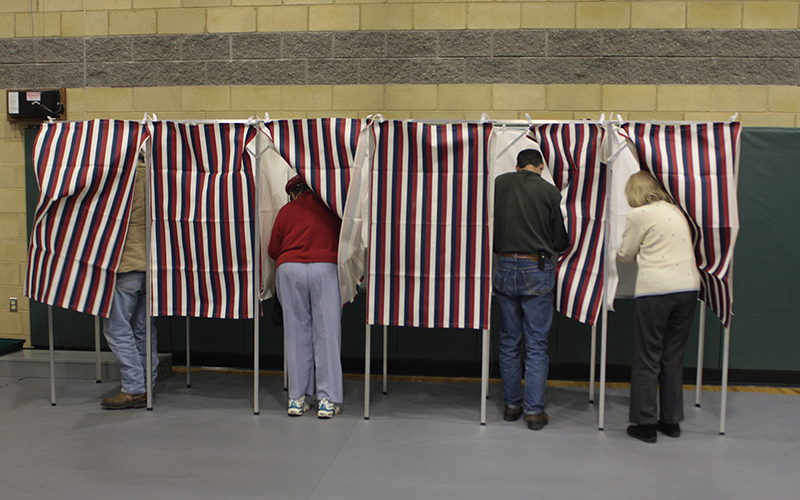
Voter turnout is expected to be above average this fall, but a report on overall civic engagement – from voting to helping neighbors – said Arizona fared poorly compared to other states. (Photo by redjar/Creative Commons)
WASHINGTON – Arizonans have lower rates of civic engagement than residents of most other states, likely because they are a “state of newcomers” who do not feel the need to build a sense of place, a public policy expert said Friday.
Lattie Coor, chairman and CEO of the Center for the Future of Arizona, cited Arizona’s low civic engagement rate in an effort to spark a conversation on ways to increase engagement nationwide, during a discussion at the Annual Conference on Citizenship in Washington, D.C.
Low civic engagement can affect everything from attendance at public meetings to voter turnout, said Coor, adding that Arizonans tend to engage in their communities and vote in elections at rates well below the national average.
“The challenge (in Arizona) is determining how and what makes citizens turned off from actions like voting,” Coor said. “But I believe there needs to be greater visibility in order to get people out to vote.”
Visibility is not likely to be a problem this fall, with a high-profile and contentious presidential election topping a state ballot with several closely watched congressional and local races as well as initiatives on recreational marijuana and the minimum wage.
Matthew Roberts, a spokesman for Arizona Secretary of State Michele Reagan, said voter turnout was slightly above average for the primary election in August and that the office expects turnout for the Nov. 8 election to be in the mid- to high-70 percent range – also a little above normal for a presidential year.
Coor cited numbers from Arizona Comes of Age, a 2015 report based on a 2013 statewide Gallup poll. The poll said that 55 percent of Arizonans surveyed said they had voted in the 2012 presidential election, compared to a national average of 61 percent that year.
Roberts challenged that survey number, saying actual turnout that year in Arizona was 74 percent, according to data from the secretary of state’s office. He said turnout has been “slightly above average” in the state over the last 16 years.
But voting is just one element in civic engagement. The Arizona Comes of Age report measured 15 actions in three categories: influencing government, building community and building social cohesion.
It found that Arizona residents ranked relatively high in one category, finishing seventh among states for eating dinner with household members frequently. It was near the middle – 36th place – for buying or boycotting products and for hearing frequently from friends or family.
The state finished near the bottom for discussing politics frequently and for contacting public officials, ranking 41st and 46th, respectively. It was dead last for rate for attending public meetings and for exchanging favors with neighbors frequently.
Unlike Utah, which has civic engagement that Coor called “close to perfection,” he said people tend to be attracted to Arizona for the opportunities it provides, but may not feel the responsibility to create a “sense of place” in the state.
Pat Beaty, senior fellow at the Center for the Future of Arizona, said improvements in Arizona’s civic engagement in the future lies in the hands of millennials who are looking to establish businesses in the state.
“Younger entrepreneurs are trying to build their own businesses in Arizona,” Beaty said. “They want to have a voice. We have to capitalize on these entrepreneurs in order to grow as a state.”
But Peter Levine said at the conference that there could well be a jump in voter participation in this election for a simple reason – fear.
“Many young people are voting in this election in order to defeat a particular candidate,” said Levine, associate dean for research at Tuft University’s Tisch College of Civic Life.